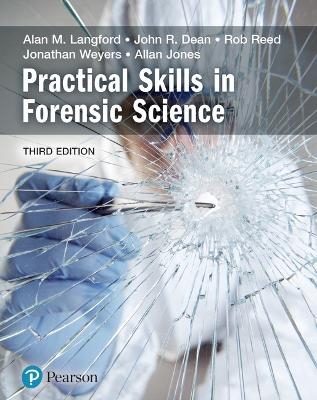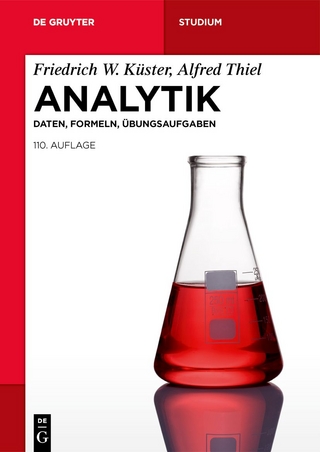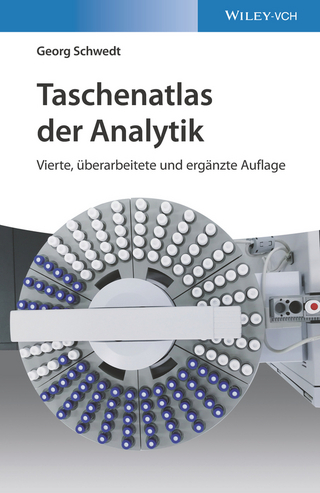
Practical Skills in Forensic Science
Pearson Education Limited (Verlag)
978-1-292-13946-3 (ISBN)
This third edition of Practical Skills in Forensic Science builds upon the excellent foundation of its predecessors and provides an easy-to-read guide to help you develop the skills you need to succeed. It retains the key features of earlier editions, with a layout that explains the essential elements of practical techniques and procedures in a step-by-step manner to help you understand their application in the context of forensic science.
Features include:
· Coverage of a wide range of practical aspects from fingerprint recovery, trace evidence examination, bodily fluid examination and DNA analysis, as well as broader skills such as tackling numerical problems and passing exams.
· Case examples, guidelines for documentation and reporting results, plus advice on the legal aspects of forensic science provide you with an understanding of the professional role of a forensic scientist.
· New material on personal development planning, learning styles, e-learning and avoiding plagiarism.
· Updated sections on software for graphical and statistical analysis.
· Worked examples and ‘How To’ boxes provide practical guidance and support.
· Key points highlight critical features of methodology.
· Use of margin tips, definitions and illustrations throughout.
· Additional sources of further study identified for every chapter.
· Safety notes highlight specific hazards and appropriate practical steps to minimise risk.
· Study exercises (and answers) in each chapter help to reinforce learning.
ALAN LANGFORD is Senior Lecturer and Programme Leader in Criminology and Forensic Sciences at Northumbria University, UK; JOHN DEAN is Professor of Analytical and Environmental Sciences and Director of the Graduate School at Northumbria University, UK; ROB REED is Professor of Biomedical Science and Director of Undergraduate Science Programs at CQUniversity, Australia; DAVID HOLMES is Director of Collaborative Programs in Applied Sciences at Northumbria University, UK; JONATHAN WEYERS is Director of Quality Assurance at the University of Dundee, UK; and ALLAN JONES is Senior Lecturer and Chancellor's Award Fellow in Ecology, Environmental Science and Zoology at the University of Dundee, UK.
ALAN LANGFORD is Senior Lecturer and Programme Leader in Criminology and Forensic Sciences at Northumbria University, UK; JOHN DEAN is Professor of Analytical and Environmental Sciences and Director of the Graduate School at Northumbria University, UK; ROB REED is Professor of Biomedical Science and Director of Undergraduate Science Programs at CQUniversity, Australia; DAVID HOLMES is Director of Collaborative Programs in Applied Sciences at Northumbria University, UK; JONATHAN WEYERS is Director of Quality Assurance at the University of Dundee, UK; and ALLAN JONES is Senior Lecturer and Chancellor's Award Fellow in Ecology, Environmental Science and Zoology at the University of Dundee, UK.
1 Essentials of practical work
2 Health and safety
3 Making measurements and observations
4 SI units and their use
5 Scientific method and design of experiments
6 Working with liquids
7 Basic laboratory procedures
8 Principles of solution chemistry
9 pH and buffer solutions
10 Introduction to microscopy
11 Setting up and using microscopes
12 Sample preparation
13 DNA analysis – fundamental principles
14 Chromatography
15 Mass spectrometry
16 Basic spectroscopy
17 Atomic spectroscopy
18 X-ray fluorescence spectroscopy
19 Infrared and Raman spectroscopy
20 Nuclear magnetic resonance spectroscopy
21 Immunoassay
22 Electrophoresis
23 Personnel and recording the scene
24 Collecting evidence – basic principles
25 Digital evidence
26 Investigating fingerprints
27 Footwear marks and impressions
28 Investigating other marks
29 Document analysis
30 Analysis of biological fluids
31 DNA analysis – forensic applications
32 Analysis of hair
33 Analysis of skeletal remains
34 Forensic odontology
35 Forensic entomology
36 Forensic botany
37 Alcohol analysis
38 Forensic toxicology
39 Bulk drug analysis
40 Analysis of paint
41 Analysis of glass
42 Analysis of fibres
43 Firearms and ballistic evidence
44 Analysis of fires and explosions
45 Finding and citing published information
46 Using online resources
47 Evaluating information
48 Word processors, databases and other packages
49 Using Spreadsheets
50 Fundamental principles of quantitative chemical analysis
51 Calibration and quantitative analysis
52 Using graphs
53 Presenting data in tables
54 Hints for solving numerical problems
55 Descriptive statistics
56 Choosing and using statistical tests
57 Chemometrics and advanced statistics
58 General aspects of scientific writing
59 Giving a spoken presentation
60 Writing a forensic statement and presenting evidence in court
61 Reporting practical and project work
62 Writing essays, literature surveys and reviews
63 Organising a poster display
64 The importance of transferable skills
65 Managing your time
66 Working with others
67 Taking notes from lectures and texts
68 Learning and revising effectively
69 Assessments and exams
70 Preparing your curriculum vitae
| Erscheinungsdatum | 29.10.2018 |
|---|---|
| Reihe/Serie | Practical Skills |
| Verlagsort | Harlow |
| Sprache | englisch |
| Maße | 218 x 274 mm |
| Gewicht | 1440 g |
| Themenwelt | Naturwissenschaften ► Chemie ► Analytische Chemie |
| Recht / Steuern ► Strafrecht ► Kriminologie | |
| ISBN-10 | 1-292-13946-3 / 1292139463 |
| ISBN-13 | 978-1-292-13946-3 / 9781292139463 |
| Zustand | Neuware |
| Haben Sie eine Frage zum Produkt? |
aus dem Bereich


